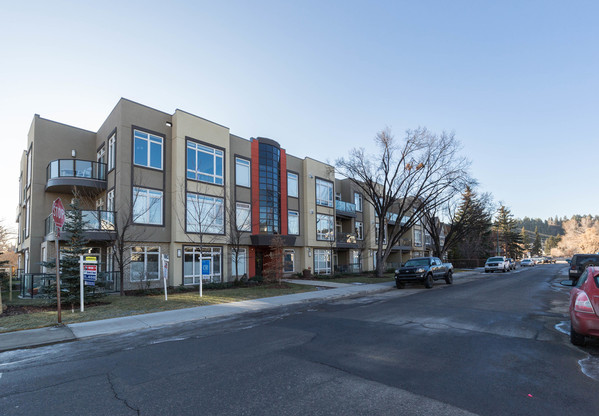Real Estate plan and budget
Real Estate service negotiates and completes Corporate real estate transactions to maximize the economic and social benefits of The City's real estate portfolio. Surplus real estate no longer required for municipal purposes is sold; property required for capital infrastructure and community service projects is acquired; and the associated administrative, leasing and funding mechanisms that enable these activities are managed.
Our service also includes management of the Revolving Fund for General Land Purchases, land policy and standards management, real estate advisory, land asset information management, coordination of strategic land planning, circulations and land transfers.
Our customers
- Calgarians directly benefit from the services as land is a valuable public asset that supports the delivery of public services and infrastructure.
- Direct customers include internal business units requiring land, public and businesses that buy from or sell land to The City, and customers of encroachment and right-of-way agreements.
Our partners
- Law
- Finance
- Facilities
- Partnerships (Housing Solutions)
Value to Calgarians
- protects City assets that reduce liability
- manages over 8,300 parcels to ensure land is available for the best Corporate use
- identifies surplus land to sell to private ownership
- supports further land acquisitions
What we deliver
- Professional land management and leasing services.
- Strategic real estate advice.
- Complete property acquisitions.
- Surplus land sales.
- Protection of City infrastructure investments.
Budget breakdown
Operating and capital budgets explained
The budgets you see here are expenditures net of recoveries.
The City develops two budgets to create impact aligned with Council’s Strategic Direction:
- The four-year (2023-2026) operating plans and budgets
- The five-year (2023-2027+) capital plans and budgets
The operating budget includes revenues, recoveries and spending related to ongoing operations. These include:
- Salaries, wages and benefits.
- Day to day programs, maintenance and services.
- Administration costs (e.g., insurance).
- Fuel
- Utilities
- Capital financing costs.
The City's total net operating budget is zero. This means we budget to collect the revenue needed to deliver services to Calgarians — no more, no less. We collect this revenue through property taxes and other sources.
The capital budget pays for long-lived assets. These provide the foundation for the services Calgarians rely on. They include:
- Maintenance of current infrastructure (e.g., bridges, buildings and playgrounds).
- Upgrades to existing community infrastructure.
- New infrastructure to provide services in areas that are underserved (e.g., Green Line).
- New infrastructure for growing areas of the city.
Learn more about our 2023-2026 Service Plans and Budgets.
See how the budget has been adjusted since November 2022
Measuring performance
We are measuring our performance in five areas. Each value is the goal we expect to reach by 2026.

What we've heard
Overall, we have received positive feedback from our internal customers via in-person interviews as they are satisfied with the quality of work and service we provide. They feel we are professional and experts in our field.
Opportunity for improvement was expressed around project communication and timeliness of transactions. These areas are being reviewed and addressed through the Real Property Bylaw and additional continuous improvement strategies.
Participate and view results of City researchWhat we're watching
- Monitoring market analytics such as, development start and stop times, absorptions of supply and demand in order to determine priorities of inventory release.
- 5G is a rapid growing technology demand which requires designing ways to streamline process and continue to turn requests for agreements within one-week time. Demand in
2021 for 5G (primarily streetlight poles) was in the range of 3-20 agreements per week. It is anticipated that demand will grow to 100-200 agreements per week in 2022. To address this potential increase in workload, dedicated resources will be assigned accordingly. - We are watching changes in memberships on committees, impact circulation representation, result in land steward changes/updates could impact our circulation processes.
- Increasing demand and expectation for interim use of underutilized parcels by Council/Calgarians. With more expectation for these types of activation, current resource capacity will have to be reprioritized to shift daily workloads.

Our initiatives
What we plan to do
Real Estate will continue to acquire property for approved capital infrastructure and community service projects. These acquisitions will be coordinated with project timelines, land requirements, and budgets. Selling surplus property, no longer required for municipal use, will also continue to be a main focus. These sales will either fund future land purchases or advance affordable housing and non-profit projects. A third focus is the ongoing leasing of property, as an interim measure, until it is required for City projects.
How we're going to get there
- Provide efficient and effective land administration through polices and business practices. This includes managing corporate land inventory, encroachments, land titles, land support and general utility right-of-way agreements, while continually improving standards and bylaws to reflect changes within the Corporation.
- Increasing the value and benefit that Calgarians receive from The City’s land inventory. This will be achieved through reduction in maintenance costs, disposition of surplus properties, as well as activating and creating interim uses for underutilized parcels for social/environmental return and increased general revenue and tax opportunities
- Generates revenue that contributes to the Revolving Fund for General Land Purchases, which funds future acquisition budgets and activate properties within communities. Properties are held for future use to ensure amenities that The City would provide (food vendors at sporting facilities) are available to communities by leasing Corporate real estate to the public.
- Property management of corporate real estate holdings held for future municipal infrastructure.
- Streamline business processes to improve efficiency and speed of transactions. Improve the clarity of lease and license agreements and related information for Corporate approvals. Continuously improve risk management, audit trails and repeatability of lease and license transactions through Corporate lease and license standardization.

